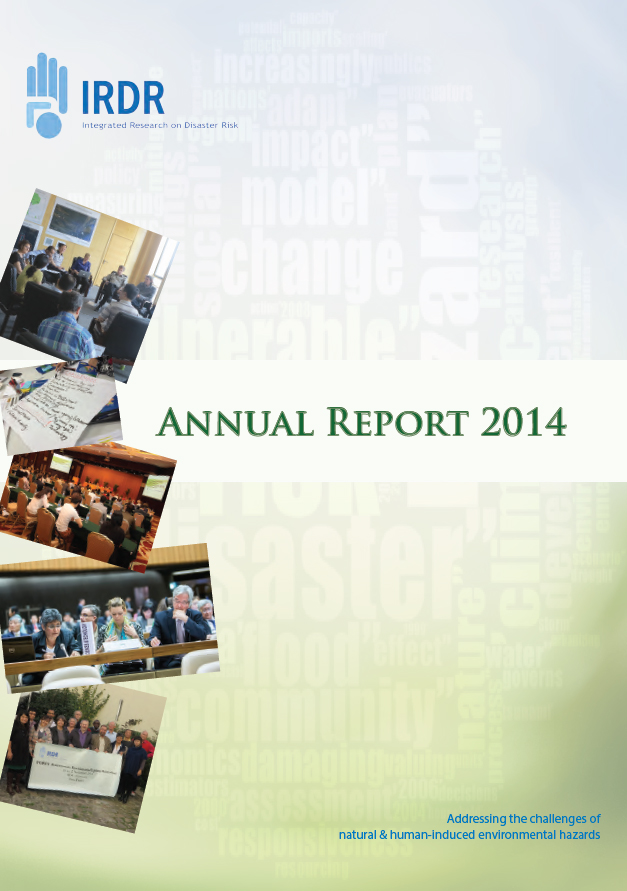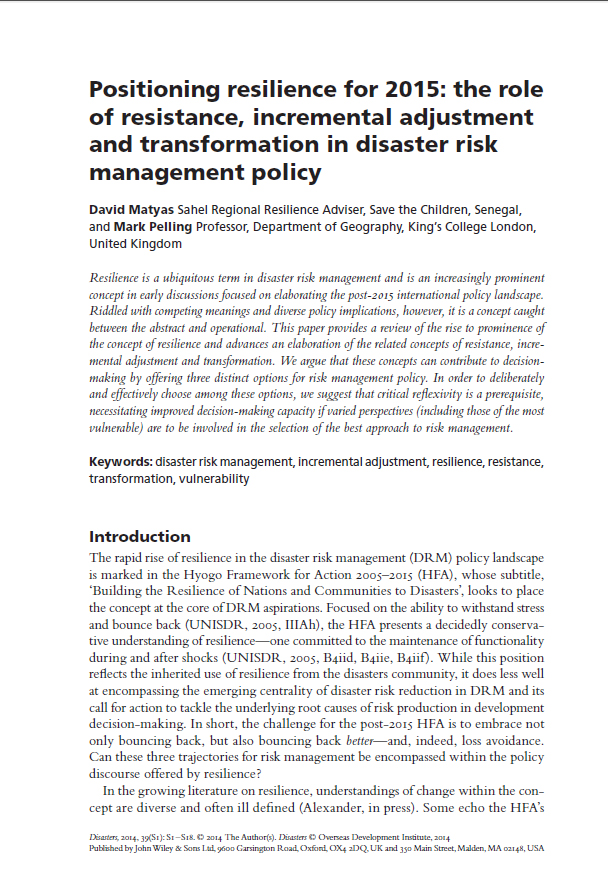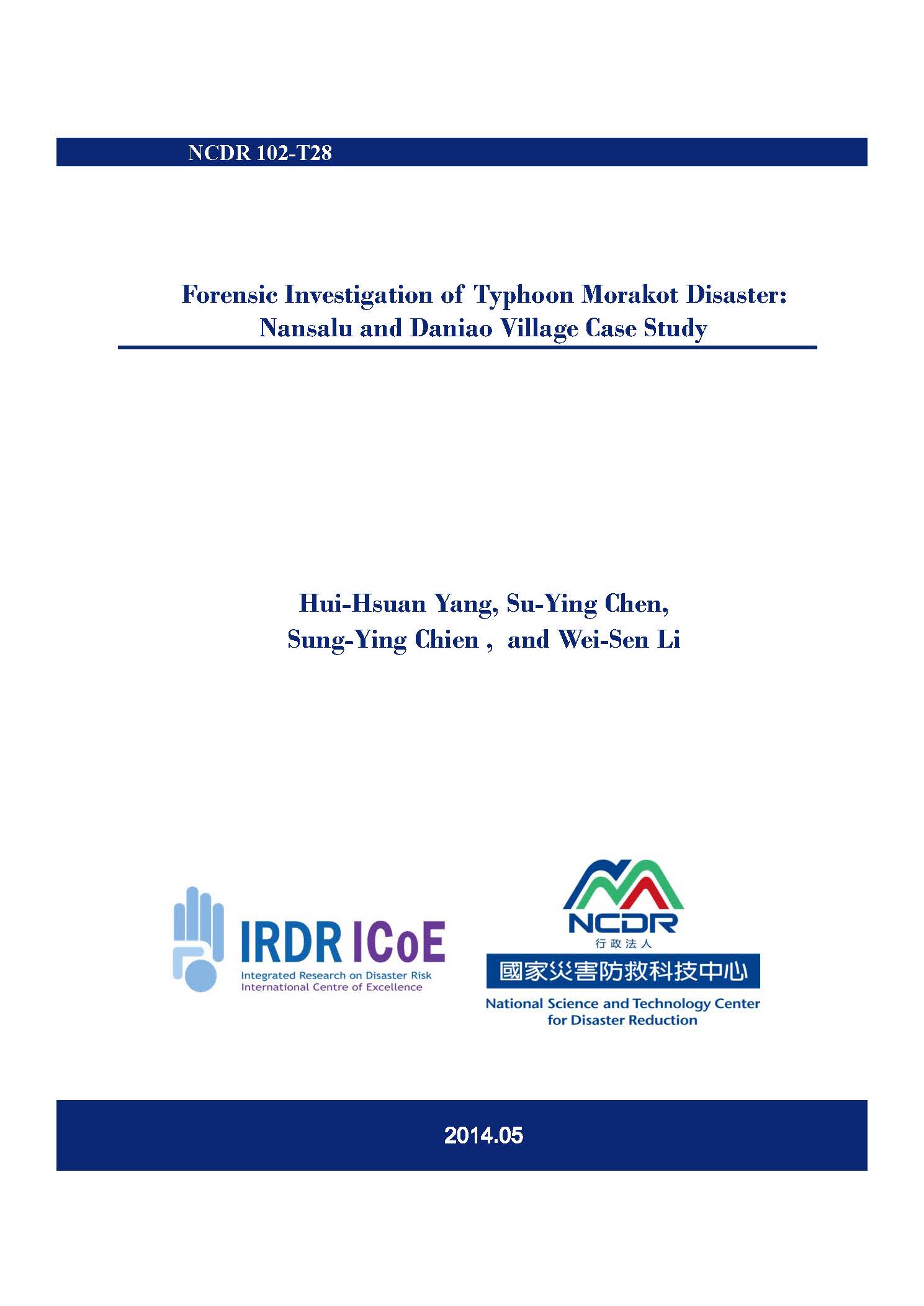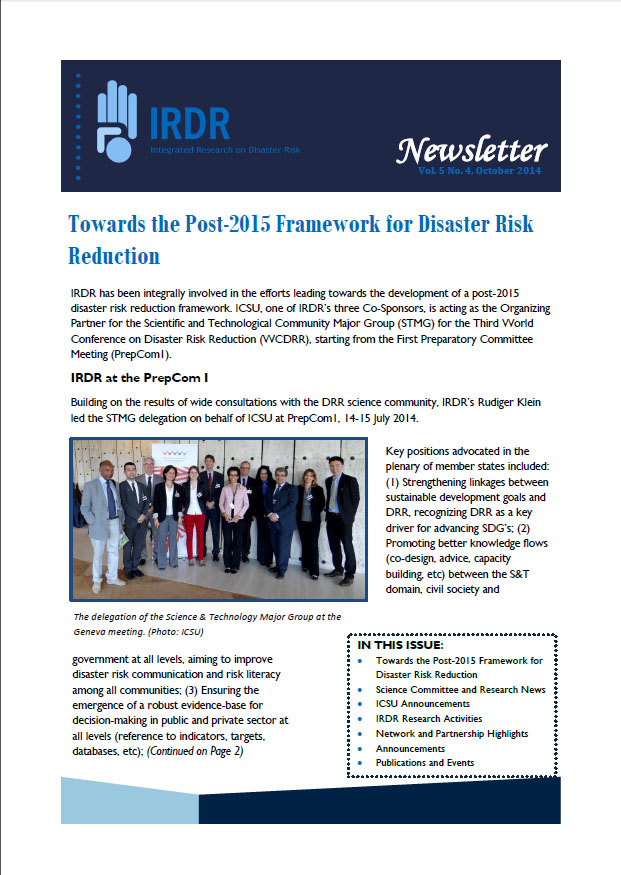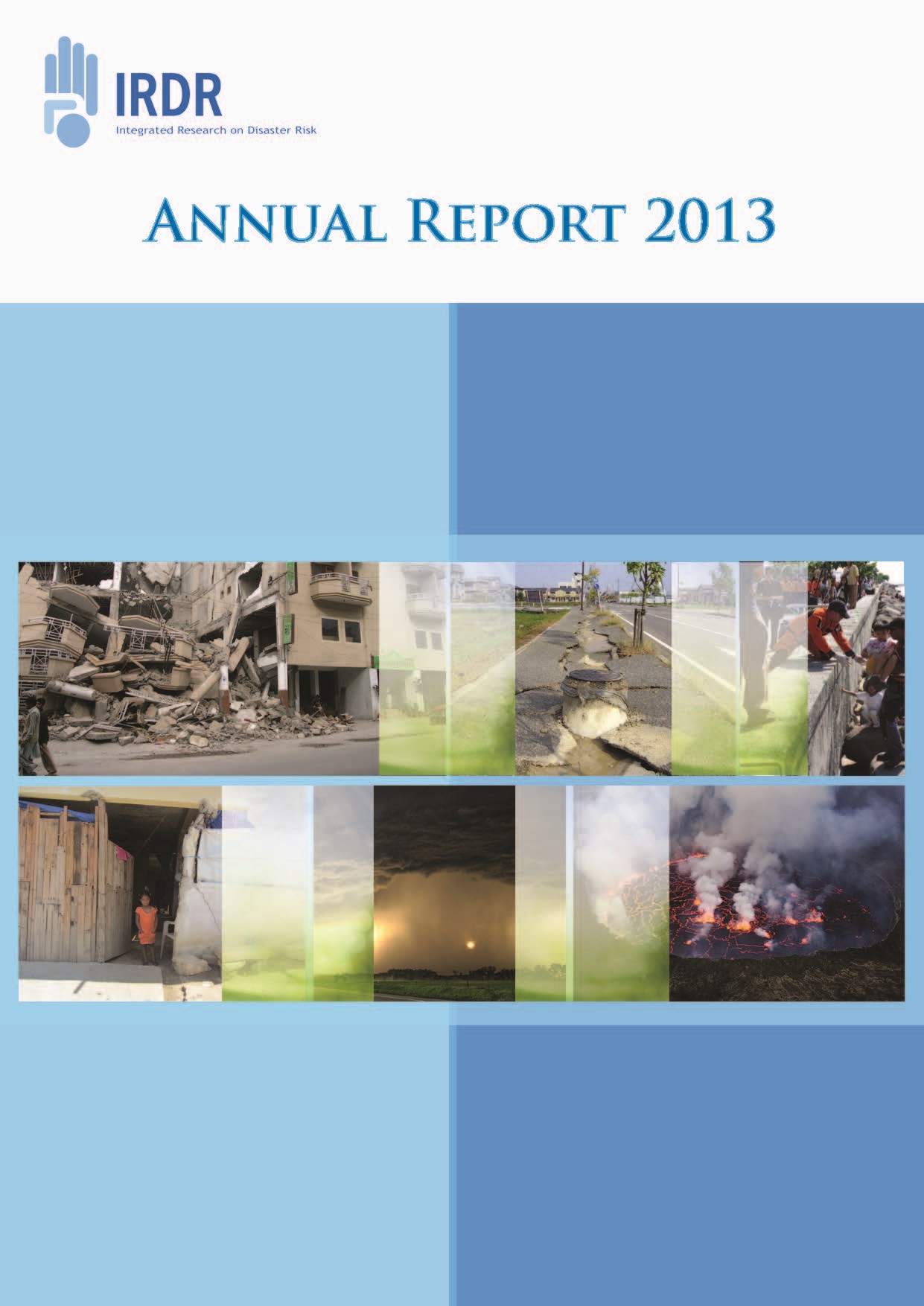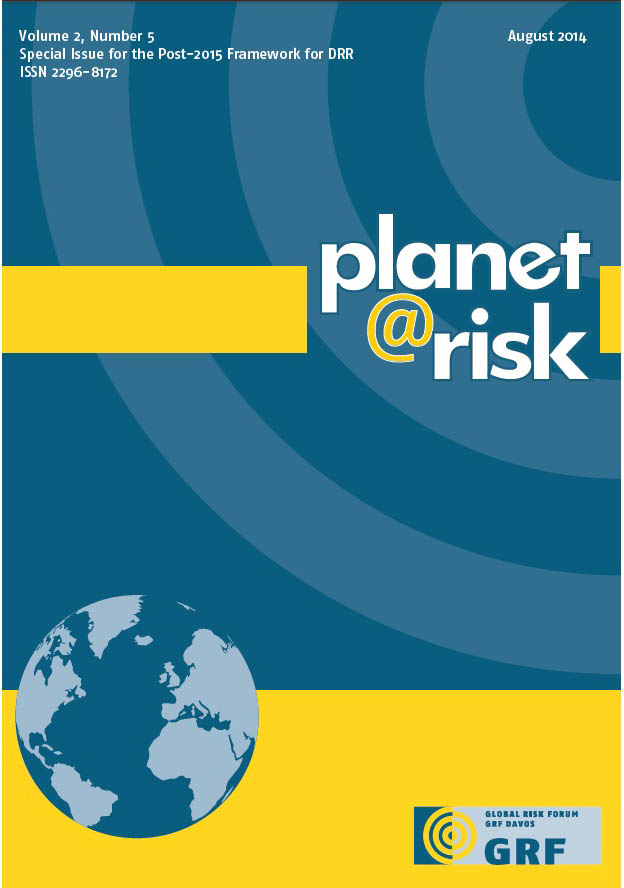The year 2014 was an exciting and engaging one for the Integrated Research on Disaster Risk (IRDR) programme as our working groups continued to deliver on our research objectives. We recorded several milestones that underscored the significance of the IRDR message in the global disaster risk reduction arena: the second IRDR conference with more than …
Category: IRDR Publications
David Matyas Sahel Regional Resilience Adviser, Save the Children, Senegal, and Mark Pelling Professor, Department of Geography, King’s College London, United Kingdom Abstract Resilience is a ubiquitous term in disaster risk management and is an increasingly prominent concept in early discussions focused on elaborating the post-2015 international policy landscape. Riddled with competing meanings and diverse …
Background Established in 2006, Periperi U is a platform for university partnership to reduce disaster risks in Africa. It stands for ‘Partners Enhancing Resilience of People Exposed to Risks’ – with a special focus on advancing university action on risk and vulnerability reduction in Africa. The partnership’s accomplishments this year underline its growing profile internationally. …
Abstract This study explores the causes of the Typhoon Morakot disaster based on adopting principles proposed by the forensic investigation approach, so as to learn from experiences of past disaster and disaster resilience. Typhoon Morakot severely devastated the southern areas of Taiwan in August 2009 and brought record‐breaking rainfalls ever recorded, causing large‐scale floods, landslides …
Forensic Investigation of Typhoon Morakot Disaster: Nansalu and Daniao Village Case StudyRead More »
In this issue of the IRDR newsletter, we feature the highlights of IRDR activities towards the Post-2015 Framework for Disaster Risk Reduction: IRDR at the PrepCom1, response to Pre-Zero-Draft, the Science and Technology Major Group, ICSU General Assembly and Global DRR Conferences in Japan. This issue also covers Science Committee research news, ICSU announcements, IRDR …
The paper reports on the World Social Science (WSS) Fellows seminar on Risk Interpretation and Action (RIA), undertaken in New Zealand in December, 2013. This seminar was coordinated by the WSS Fellows program of the International Social Science Council (ISSC), the RIA working group of the Integrated Research on Disaster Risk (IRDR) program, the IRDR …
Integrated Research on Disaster Risk (IRDR) takes a global, multi-disciplinary approach to dealing with the challenges brought by natural disasters, mitigating their impacts, and improving related policy-making mechanisms. Although the approaches in the sciences vary, Programme approaches the issues of natural and human-induced hazards and disasters from several perspectives: from the hazards to the disasters, …
Emma E.H. Doyle, John McClure, Douglas Paton, David M. Johnston Abstract The impact of uncertainty on Disaster Risk Reduction decision-making has become a pressing issue for debate over recent years. How do key officials interpret and accom- modate uncertainty in science advice, forecasts and warnings into their decision making? Volcanic eruptions present a particularly uncertain …
Uncertainty and decision making:Volcanic crisis scenariosRead More »
ROVINS, Jane, E.; DOYLE, Emma E. H.; J HUGGINS, Thomas Abstract The IRDR Conference 2014 encouraged researchers, politicians, practitioners, funding agencies and disaster risk reduction-related organisations to discuss and develop ways to better integrate disaster risk science into policy, practice and sustainability. The format of the Conference will be a series of plenary sessions dealing …
In this issue of the IRDR newsletter, we feature the highlights of the recently concluded IRDR Conference 2014 with a strong message on the role of Disaster Risk Science in global initiatives. The Keynote Speeches, Closing Summary and Way Forward are also included. This issue also covers the appointment of new Executive Director for IRDR, …
